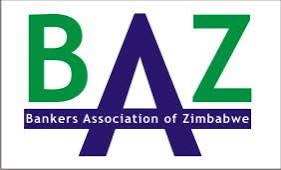Business Correspondent
Urgent Need for Basel III Implementation
A recent report from the World Bank highlights that Zimbabwean banks are falling short of global banking standards, particularly in adopting the Basel III global liquidity standards. An International Monetary Fund (IMF) technical assistance team has emphasized that implementing these standards is now a high priority for the country, raising concerns about the stability of local banks.
In July 2023, data from actuarial science indicated that many banks in Zimbabwe were inadequately capitalized, despite holding billions in depositor funds. This situation is alarming, especially as it contradicts the requirements set forth by the Basel III capital accord, which mandates that banks calculate their economic capital using internal models, such as the Z-Score, to ensure financial stability.
Background on Basel III Standards
The Basel III standards were developed by the Basel Committee on Banking Supervision (BCBS) in response to the 2008 financial crisis, aiming to enhance the regulation, supervision, and risk management within the banking sector globally. The BCBS’s goal is to promote monetary and financial stability worldwide.
“The 2024 IMF technical assistance report details Zimbabwe’s efforts to implement the Basel III liquidity framework, focusing on the Net Stable Funding Ratio (NSFR) and Liquidity Coverage Ratio (LCR),” stated the World Bank’s Africa chief economist’s office in its latest findings. This report underscores the challenges facing Zimbabwe’s banking sector, including liquidity risk and a high level of non-performing loans.
Recommendations for Improvement
The report offers several recommendations to strengthen risk-based supervision in Zimbabwe. The Reserve Bank of Zimbabwe (RBZ) is currently working to finalize NSFR regulations and improve data transparency. “As recommended by the Financial Sector Stability Review (FSSR) and previous technical assistance missions, finalizing Basel III liquidity standards in Zimbabwe is crucial,” the report noted. The LCR regulations were issued in December 2022 and have been implemented by banks since then.
The IMF technical assistance mission has been actively involved in supporting the RBZ in this transition. They reviewed drafts of the RBZ’s regulations, assisted in developing a questionnaire, and provided training on the LCR and NSFR. “The NSFR ensures that banks maintain a stable funding structure over a one-year timeframe, which is essential for long-term financial health,” the IMF team explained.
Ongoing Support and Future Steps
At the RBZ’s request, the IMF’s monetary and capital markets department conducted a hybrid mission from March 25 to 28, 2024, and visited Harare from April 8 to 12, 2024, to further assist in these efforts. “The collaboration between the RBZ and the IMF is vital for enhancing the resilience of Zimbabwe’s banking sector,” said an IMF representative.
As Zimbabwe continues to navigate these challenges, the implementation of Basel III standards is seen as a critical step towards ensuring the stability and sustainability of its banking system. “Strengthening our banking regulations will not only protect depositors but also enhance investor confidence in our financial institutions,” remarked a senior official from the RBZ.
In conclusion, while the path to compliance with global banking standards may be fraught with challenges, the commitment from both the RBZ and international partners like the IMF signals a proactive approach to safeguarding Zimbabwe’s financial future.
Zim GBC News©2024


